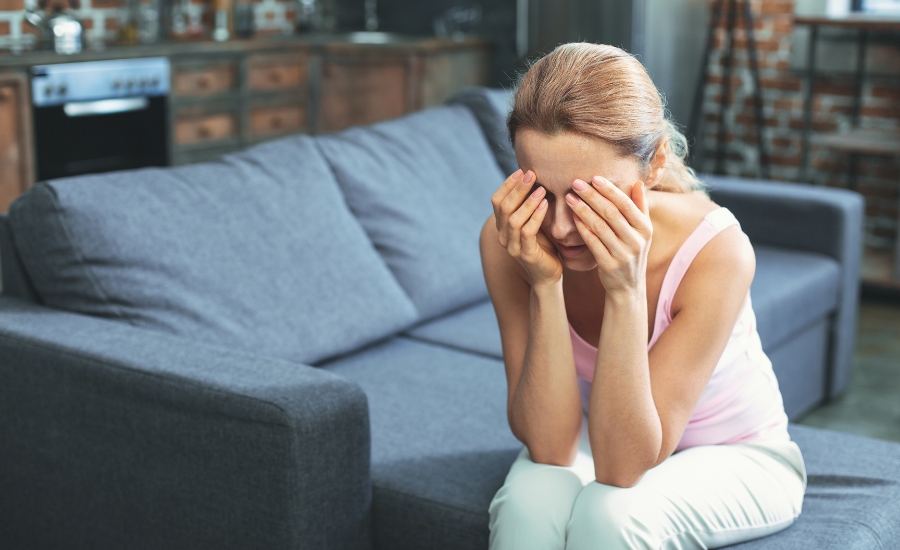Have you had a loved one die and find that you are carrying guilt? Maybe it’s a guilt that you couldn’t stop the death. Maybe it’s a guilt that you didn’t answer their last call. Or maybe it’s a guilt that you weren’t enough in some way. It could even be guilt from a mistake that you made.
When you look back on different aspects of life it’s easy to think that somehow you “could’ve would’ve, should’ve”. I think this is a normal part of grief where you search for a way that you could’ve somehow controlled the outcome, but the truth is that there are some things that are out of your control as much as you wish that weren’t true.
The Three C’s
Grief expert David Kessler, from grief.com, mentions that there are three C’s that we can take into account when it comes to a loved one’s death:
- You didn’t cause it. Unless you intentionally harm someone, I think sometimes your mind tries to tell you that if only you would’ve done this or that, the death could’ve been avoided. The truth is death can never be avoided, only delayed in some circumstances. Most people I talk to attempt to make themselves the cause of someone’s medical diagnosis or death by suicide, but are you really the cause of these things? Did you really cause someone’s body to develop a disease or mental health condition?
- You couldn’t cure it. Sometimes, even after the best efforts of medical professionals or licensed mental health professionals, some things are really hard to cure and it’s no one’s fault. There is no one to blame. It is a reality of the human condition and this thing called life.
- You couldn’t control it. As much as you may want to believe that you can control life, there are some things that you can’t. This can be really hard to accept because we think we could’ve changed the outcome or at least delayed it. You can’t even control everything about you, so how could you control what happens to someone else? Many times, you can only control your response to what happens to you. Life happens in what are sometimes unpredictable ways, even when you know God is still in control. Truly, He’s the only who can control all things – which can lead us to either blame God or blame ourselves because “surely God wouldn’t allow this to happen”. Working through this “C” seems to be one of the toughest ones, but as you work through it over time, it can help you to come to terms with what has happened. It doesn’t mean that you have to like it, it simply means that you will choose to accept the reality of what happened and stop fighting it. As David likes to say, “Pain is inevitable, but suffering is optional.”
When Others Tell You to Not Feel Guilty
When you try to express what you are feeling to others, many times people have trite answers that they think will either minimize your uncomfortable feelings or at most, minimize theirs. Just because someone tells you that you shouldn’t feel guilty doesn’t mean that your brain and body will say, “Okay. I’ll stop now.” Have you ever experienced life that way? I haven’t, and I don’t know anyone who has.
Let’s be honest, there are times you may have made a mistake. You are human and making mistakes is a part of it. We can never be perfect this side of heaven. So, one of the first things you have to do is acknowledge whether you are feeling true guilt or if you are feeling false guilt.
What to Do if You Know You Made a Mistake
I think the best thing you can do when you feel guilty about your loved one’s death is to express your pain to God. Guilt is a heavy burden. It says, “I did something bad.” You were not designed to carry such a heavy load on your own. Usually when you feel guilty about something, you confess it and change your behavior, making new choices. If you find that you made a mistake and you have true guilt, confess it to God and to another safe person. After you confess this, accept God’s forgiveness and his redemption. Find a scripture that helps you to put truth into your mind about your situation. One that I personally like is I John 1:9, “If I confess my sin, God is faithful and just to forgive my sin (and all of my shortcomings) and to cleanse me from all unrighteousness.” This means that I can walk in freedom from guilt – not because of me, but because of God. There are several other passages that state that God does not remember our sins – meaning that He chooses to overlook them when they are forgiven. I don’t know which scripture is most meaningful to you, but choose a truth from God’s Word and put it into your heart and mind daily. The more you rehearse the truth, the more it will grow and take root in your life.
False Guilt
But in grief, sometimes it’s different. Many times, it’s false guilt that you are carrying because you can’t think of the bad thing you did, but you still feel the weight of it. When you notice this, talk with a grief coach or counselor to help you process through the reasons for the guilty feelings and/or what other things may be attached to it. Sometimes, the false guilt is related to something else in our past.
Living Amends
Another way to let go of guilt is by what is termed making a living amends. This means that if you didn’t say I love you to your loved one the last time you saw them, that you decide to tell those you are closest to that you love them whenever you part ways even if it’s only when someone is leaving for work or headed to the store. Another way living amends are done is by investing in an organization that helps to prevent what your loved one died from, such as research on childhood cancer. Perhaps you can become involved in promoting something that your loved one enjoyed, such as Samaritan’s Purse.
Letting Go
Letting go of false guilt is hard to do. It requires a shift in your mindset and belief system. It’s especially hard to do on your own. You are hard-wired for connection with others so, I want to encourage you to talk with a safe friend, coach, counselor who can allow you to hold the guilt until you are ready to let go of it in your own time, but will also help you to think about it in a healthy way. The worst thing you can do is continue to keep these feelings to yourself because they tend to get bigger. As feelings of guilt grow, they can lead to clinical anxiety and/or depression.
Free Guided Journal
If you would like to start processing some of your grief, please download the free Healing from Within guided journal on the home page of Delighted by Grace and then use this as a way to talk through this with a safe person. Community may wound us in some ways, but it is also the best way that research (and God’s Word) show that we heal. Who will you reach out to today to help you with any feelings of guilt you may possess?



Leave A Comment